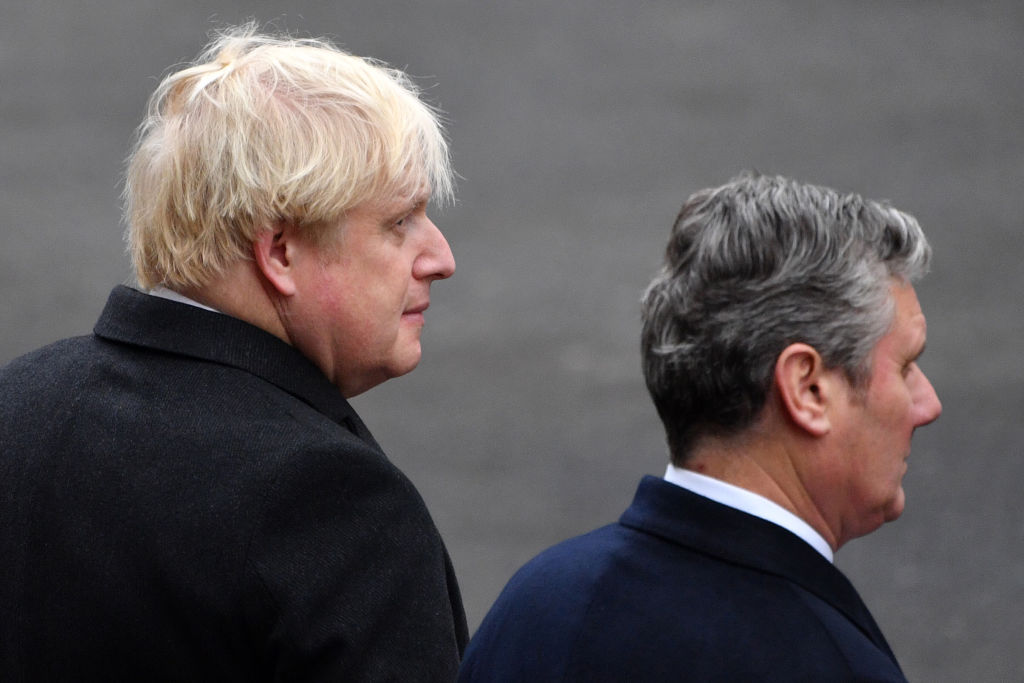As Johnson and Starmer dance to the same tune, politics will look for an outsider

THIS week, the Labour leader Sir Keir Starmer has invoked Margaret Thatcher in an effort to skewer Boris Johnson for ignoring Covid rules and attacked the Prime Minister for presiding over a policy of “low growth and high taxes”.
It’s a strong position for Starmer to be in, as support for Johnson groans under the weight of the allegations of Covid rulebreaking.
But its longevity will be difficult to navigate. The two main political parties are on cusp of coalescence in the comfortable centre ground. This is alarming for many Tory backbenchers, sceptical of both the National Insurance rise set to come in in April and the overwhelming amount of money needed to even come close to the Prime Minister’s net zero strategy.
The simple question Starmer has to ask himself is, what would he do differently if he was Prime Minister, cut taxes? Such a prospect would be seen as treacherous to many of his own MPs.
Sure, he could contend that the National Insurance rise is not the right form of taxes because it disproportionately hits the poor and the young. He would be right, of course. But it’s not miles off of the current Conservative agenda, even if he disagrees on the path to getting there.
His Shadow Chancellor Rachel Reeves has taken a realistic approach, offering the hand of friendship to business and promising to create an economic position which allows for prosperity, innovation, and growth. When Gordon Brown sliced corporation tax in 2007, he did so by scrapping the lowest tax band of income tax and hiking – you guessed it – national insurance contributions.
For all his promises of being a low-tax Tory, Rishi Sunak is tied to the Prime Minister. His joint opinion piece defending the new rate of national insurance over the weekend has only chained him more securely to Johnson’s record. Liz Truss, for her part, has tried to distinguish herself from the duo by casting herself as a Thatcher-like character.
Both Johnson (or his successor) and Starmer have an uphill battle to cast themselves as opposing political parties with different ideas and different ways of getting there.
This is both a short term problem for either to win in an election; especially for Labour, who would struggle to cleave the SNP’s grip off of Scotland. But it is also a tipping point of a familiar cycle.
Our political system has always thrived on this difference, for better or worse. Whenever there has been too little divergence on politics, a more extreme brand has been able to take root. New Labour gave us Jeremy Corbyn; a Eurocentric David Cameron birthed Nigel Farage. Where voters are unable to distinguish between the two parties, there will be room for a more fundamentalist version of both politics.
More than half of this battle is one of personality. The former Shadow Chancellor John McDonnell was in many ways more politically astute than Corbyn, but he was never able to capitalise on the celebrity of the Corbynista movement. Imagine, for a moment, McDonnell ever standing on a stage at Glastonbury. Boris Johnson once filled this void of personality in the Conservatives when voters were looking for someone to answer the Brexit question. He has struggled, since then, to carve out a position for himself and instead is relying on character alone to see him through.
Right now, there are no obvious contenders for the job of outsider. But as the two leaders circle closer and closer towards one another, you can bet there will be those vying for the harsh spotlight of the fringes.
